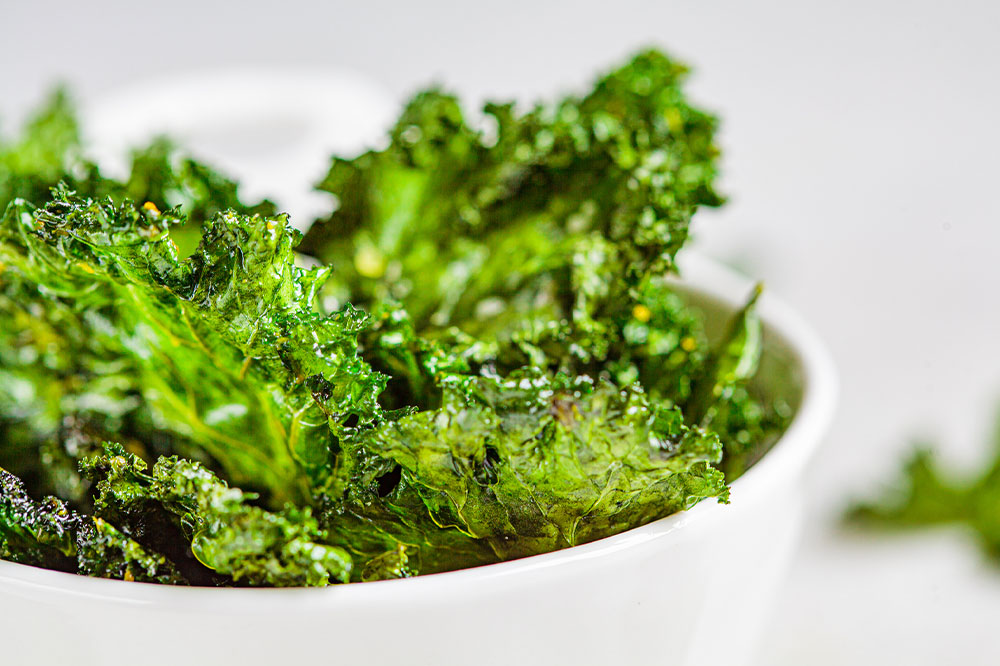Nutrient-rich Foods to Eat to Manage Osteoporosis

Just like how the human body replaces old cells with new ones, bone tissue often gets broken down and is replaced by new tissues. If the body cannot produce new bones fast enough to replace the lost ones, it is a condition known as osteoporosis. Here, the skeleton becomes fragile, and the bones turn weak and brittle, putting people at risk of frequent fractures. Keep reading to learn about healthy foods to manage osteoporosis symptoms.
Food and osteoporosis
Osteoporosis can affect all the bones, but it is most common in the hip, wrist, and spine. Fractures can also affect the upper arm, lower legs, and pelvis. The broken bones can lead to severe pain and disability. Osteoporosis is a silent disease, as symptoms don’t show until a fracture occurs. An individual’s bone mass increases steadily until they reach 12 years of age, accelerating at puberty until mid-twenties, after which it begins to decline steadily. Though it is impossible to prevent bone loss, a healthy nutritional regime can help children achieve peak bone mass and prevent premature bone loss in adults. For people with osteoporosis, the bones become so weak that a cough, a mild fall, or stress can lead to fractures. The slow collapse of bones can lead to severe pain and a change in posture. People with a history of poor nutritional habits, thyroid issues, and overactive adrenal glands are at a higher risk of osteoporosis. Some unhealthy lifestyle habits, like lack of regular physical activity, can trigger the early onset of osteoporosis.
8 key nutrients that reduce the risk of osteoporosis
The cells that facilitate bone formation are called osteoblasts, and the cells involved in bone resorption are called osteoclasts. Vitamin or nutrient deficiencies can interfere with these cells’ functioning. A healthy meal plan can help achieve peak bone mass in children, maintain good bone health in adults, and prevent and treat osteoporosis in seniors. A nutritional regime rich in calcium, vitamin D, and protein helps maintain healthy bones. Some of the best nutrient-rich foods that one must include in the meal plan to reduce the risk of osteoporosis are listed below.
Calcium rich-foods
Calcium is crucial for bone health for children, adults, and seniors. It combines with other essential minerals and forms hard crystals that give the bones structure and strength. Bones are the body’s calcium bank, as they store 99% of calcium. Since one’s body does not make calcium, one must obtain it from food. If the meal plan is deficient in calcium, the body uses the calcium from the bones, causing bone density loss and osteoporosis.
- Milk
- Natural yogurt
- Parmesan cheese
- Cheddar cheese
- Kale
- Cucumber
- Broccoli
- Watercress
- Oranges
- Dates
- Kiwi
- Pork chops
- Collard
- Sesame seeds
- Rice pudding
- Cod
- Trout
- Herring
- Whitebait
- Dried Figs
- Tofu
Protein rich-food
Proteins help improve the bones’ ability to absorb calcium and supply the necessary amino acids to help maintain muscle mass. Besides providing structural integrity to the bones, proteins also reduce the risk of falling. Lack of adequate protein can affect skeletal growth in adolescents. Healthy sources of protein include-
- Beef
- Pork
- Poultry
- Fish
- Beans
- Lentils
- Tofu
- Eggs
- Peanuts
- Nut butters
- Seeds
- Milk
Vitamin D
Vitamin D helps absorb calcium from foods and helps bone renewal and mineralization. Lack of vitamin D causes the bones to turn soft and puts people at mild risk of osteoporosis. Exposure to sunlight is the best source of this vitamin. However, one can opt for healthy food choices, including-
- Wild and farmed salmon
- Sardines
- Mackerel
- Tuna
- Cod Liver oil
- Shitake mushrooms
- Egg yolk
Vitamin K
Another essential vitamin for bone health is Vitamin K which assists in synthesizing a protein called osteocalcin. The role of osteocalcin is to maintain bone strength. Vitamin K deficiency can cause low bone mass and osteoporosis, increasing the risk of fractures. Major nutritional sources of vitamin K include-
- Spinach
- Kale
- Brussels sprouts
- Lettuce
- Vegetable oils
- Pork
- Eggs
- Blue Cheese
- Swiss cheese
Vitamin A
While vitamin A is crucial for bone health, excessive levels of this nutrient can induce osteoporosis. Look for vitamin A only in food and avoid taking supplements without consulting a doctor beforehand. Good food sources of vitamin A are listed below.
- Fish oil
- Leafy green vegetables
- Carrots
- Pumpkins
- Bell peppers
- Mangoes
- Papaya
- Apricots
B vitamins and homocysteine
Collagen is present in one’s bones, skin, muscles, and tendons. It helps in providing structure and strength to the bones. Homocysteine is an amino acid that can affect the synthesis of collagen. Vitamin B deficiencies can cause the rise of homocysteine, which then interferes with collagen synthesis, causing the bones to lose their strength and shape. Foods rich in vitamins B6, B12, and folate can help maintain collagen levels. Healthy nutritional sources of Vitamin B12 include-
- Fish
- Liver
- Beef
- Pork
- Milk
- Cheese
- Broccoli
- Cabbage
Magnesium
The body stores half the total magnesium in one’s bones. Magnesium is crucial in bone formation, as it stimulates osteoblasts. Seniors are at high risk of magnesium deficiency. The foods listed below are healthy sources of magnesium and help prevent conditions like osteoporosis.
- Leafy green vegetables
- Whole grains
- Legumes
- Potatoes
- Sweet potatoes
- Raisins
- Prunes
Zinc
Zinc is crucial for bone regeneration and mineralization. Without adequate zinc, bones cannot maintain themselves. Zinc assists in the proper functioning of vitamin D. To manage osteoporosis symptoms, include the following zinc-rich foods in your daily meal plan-
- Eggs
- Dairy
- Lean red meat
- Shellfish
- Pecans
- Cereals
- Bread
- Brazil nuts
Though osteoporosis is an irreversible condition, following a balanced nutritional regime from early childhood combined with a physically active lifestyle helps prevent the loss of bone density early in life. A good combination of these foods can help prevent bone weakening and frequent fractures. However, besides eating healthy foods, one must remember not to take supplements for the above nutrients without consulting a health expert first.











